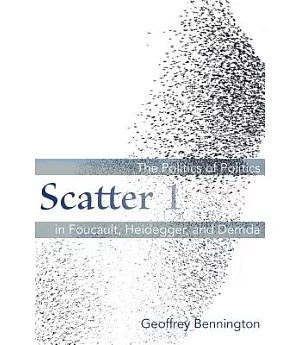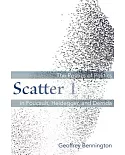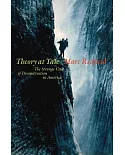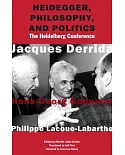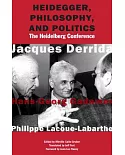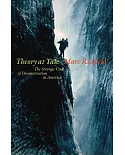Scatter 1 posits a politics of politics that is an irreducible part of politics itself. In contrast to the familiar denunciations of this dimension of politics from those lamenting the
crisis in liberal democracy, this book argues that the politics of politics, usually associated with rhetoric and sophistry, is, like it or not, part of politics from the start, and that it
condemns those denunciations to a dogmatism and moralism that share an essentially metaphysical (Platonic) ground. Failure to deconstruct that ground generates a philosophically and politically
debilitating self-righteousness that this book attempts to understand and undermine. After a detailed analysis of Foucault’s influential late concept of parrhesia, which is shown to be both
philosophically and politically insufficient, close readings of Heidegger (Foucault’s declared "essential philosopher"), Kierkegaard and Derrida trace complex relations between sophistry,
rhetoric and philosophy, truth and untruth, decision, madness and stupidity, in an exploration of the possibility of developing an affirmative thinking of politics that is not mortgaged to the
metaphysics of presence. It is suggested that Heidegger’s complex accounts of truth and decision, as they develop through the 1920s and 30s, which must indeed be read in close conjunction with
his notorious Nazi commitments, contain nonetheless essential insights that many strident responses to those commitments ignore or repress. Those insights are here developed--via an ambitious
account of Derrida’s often misunderstood interruption of teleological concepts in general--into a deconstructive retrieval of the concept of dignity, in preparation for the more general
re-reading of the tradition of political philosophy that will be undertaken in Volume 2 of this work under the sign of an essential scatter that gives this project its overall title.

